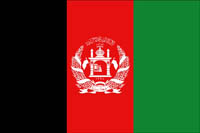Afghanistan: bombings in Kabul force officials to strengthen security
When the call to prayer rings out, Muslim faithful converge on the blue-tiled Qaraman-e-Karbala Mosque in the Afghan capital. At the gates, they are politely stopped and those with bags are searched.

The imam, Mohammad Kazim, is apologetic but firm about the new rules imposed after five bombs rattled Kabul on Tuesday and Wednesday.
Coming after bloody anti-Western riots in May, the blasts have intensified unease in the city, where many people increasingly worry that the insurgency in the countryside is creeping into what has been a relative oasis since the Taliban's ouster more than four years ago.
The blasts targeted government workers and security forces, killing one person and wounding four dozen. Three of the bombs hit buses taking people to work, and all were remote-controlled devices hidden in pushcarts - reminiscent of attacks that plague Afghanistan's south and east.
Kabul is now on high alert, with more police patrols and checkpoints in the streets.
While authorities have not arrested any suspects, the Defense Ministry spokesman pointed to Taliban insurgents, saying they are desperate to disrupt Afghanistan's political and economic progress.
The bombings were a shock for Kabul's people, who already were unsettled from the May riots sparked by a fatal road crash involving a U.S. military truck. At least 20 people died in the unrest.
Subscribe to Pravda.Ru Telegram channel, Facebook, RSS!





